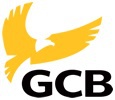Moody's Investors Service on Friday downgraded GCB Bank Limited's global local-currency long-term deposit ratings to B3 from B2, its foreign-currency deposit ratings to Caa1 from B3, and adjusted downward its baseline credit assessment (BCA) to b3 from b2. The outlook on the bank's deposit ratings remains negative.
The rating action follows the weakening of Ghana's credit profile, as captured by Moody's downgrade of the country's government bond ratings to B3 from B2, with a negative outlook, on 19 March 2015 (please see "Moody's downgrades Ghana's sovereign rating to B3; outlook negative").
In turn, GCB Bank's ratings were downgraded as a consequence of (1) the significant correlation between the bank's creditworthiness and the sovereign's own credit profile through the bank's sizeable holdings of government-related assets; and (2) Ghana's weakening operating environment, which will likely exert pressure on the bank's asset quality metrics.
Ratings Rationale:
Today's downgrade of GCB Bank's ratings reflects the extensive interconnectedness between its balance sheet and sovereign credit risk, owing to the banks' high exposures to the government of Ghana (B3 negative). While on a declining trend, GCB Bank's direct and indirect exposures to the sovereign -- through government securities, public-sector loans and central bank balances -- remain high. Together, these exposures accounted for over 50% of the bank's total assets, or 3x its shareholder equity as of September 2014, according to Moody's estimates.
The rating action also reflects Ghana's weakening operating environment, which will likely exert pressure on the bank's financial metrics, asset quality in particular. For example, borrowers' loan-repayment capacity could come under pressure from Ghana's (1) slowing economic growth rates (Moody's estimates real GDP to have slowed to 4.2% in 2014 and will further decelerate to 3.5% in 2015); (2) increasing in inflation rates (17% by end 2014, from 15.3% as of end 2013); (3) high interest rates; and (4) delays in government payments to domestic corporates. As of September 2014, the bank reported non-performing loans at 9.4% of gross loans.
Moody's notes, at the same time, that GCB Bank's ratings also acknowledge significant and sustained improvements in the bank's (1) capitalisation and profitability metrics, leading to improved loss-absorbing buffers; and (2) management capabilities, technology infrastructure and service levels, which will likely support efficiency and profitability over time.
The downgrade of the foreign currency deposit rating to Caa1, is in line with the lowering of Ghana's country ceiling for these deposits to Caa1. The country ceilings reflect foreign-currency transfer and convertibility risks.
What could move the ratings down/up:
Negative pressure could be exerted on GCB Bank's ratings if Ghana's sovereign's creditworthiness weakens further, leading to an increase in the credit risks embedded in the bank's loan and securities portfolios.
Upward pressure on GCB Bank's ratings is currently limited, as implied by the negative outlooks on the Sovereign and bank ratings. However, improvements in the domestic operating environment and Ghana's credit-risk profile could prompt Moody's to change the outlook to stable on the bank's deposit ratings.
The principal methodology used in these ratings was Banks published in March 2015. Please see the Credit Policy page on www.moodys.com for a copy of this methodology.
Business News of Saturday, 21 March 2015
Source: starrfmonline.com
Moody’s downgrades GCB Bank’s local-currency deposit rating to B3













